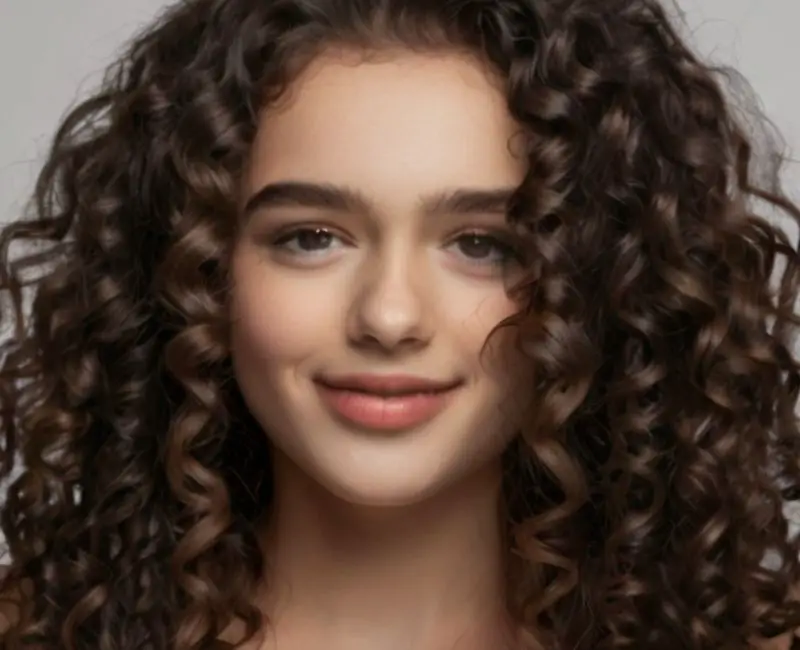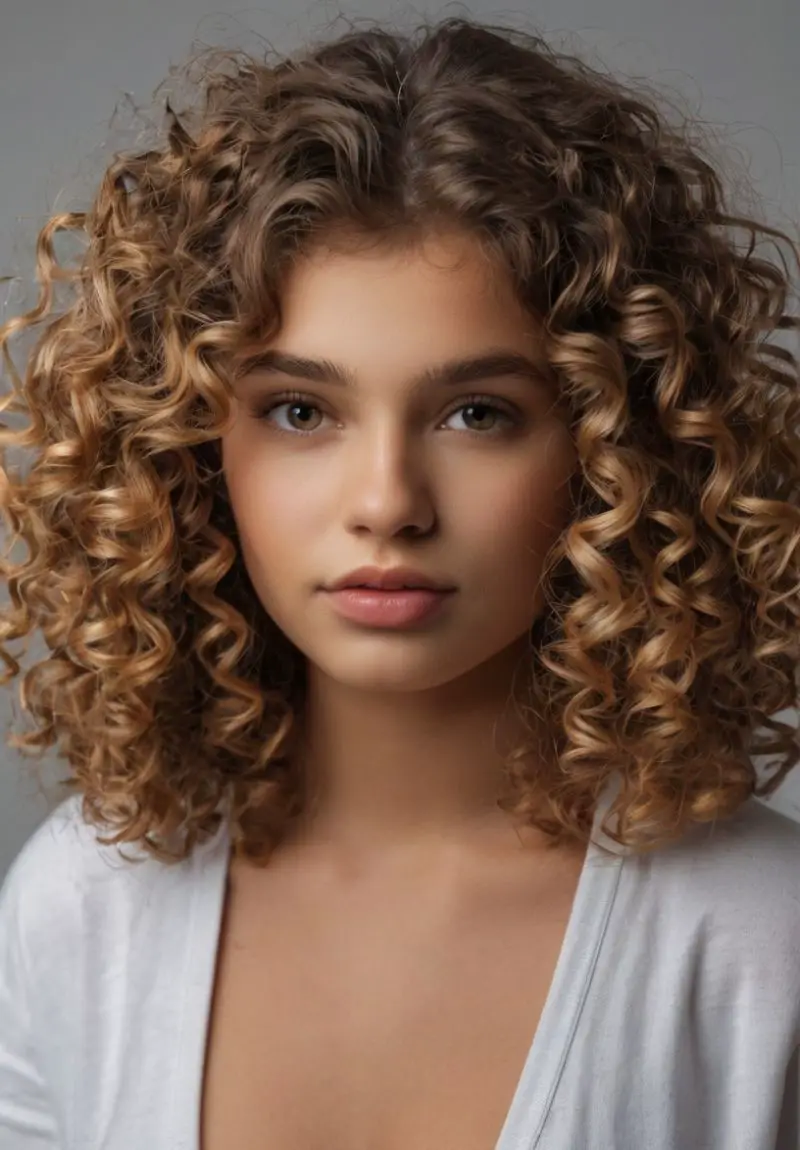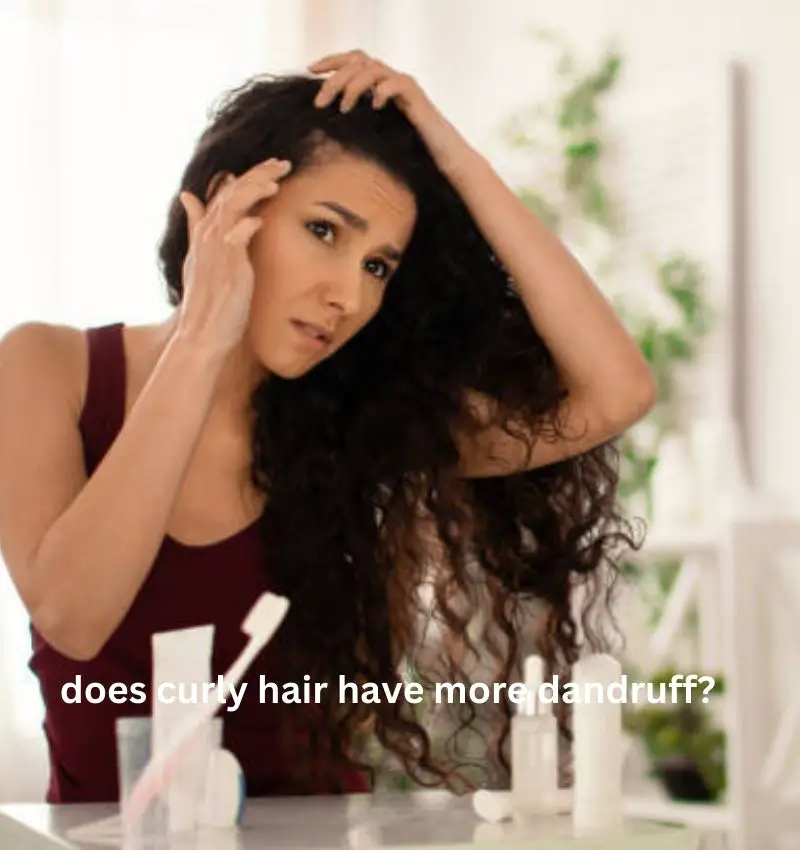Curly hair, with its enchanting coils and spirals, embodies a unique charm. Yet, amidst the allure, many curly-haired individuals grapple with a persistent adversary: dandruff.
The roots of this scalp issue often remain shrouded in mystery and what causes dandruff in curly hair?
In this blog, I through the labyrinth of curly hair care to reveal the elusive causes of dandruff. Distinctive traits of curly locks to examining the influence of environmental elements and lifestyle choices, I aim to shed light on this common conundrum.
So, if you find yourself in a battle against dandruff amidst your curls, join me to the secrets behind its occurrence.
What Causes Dandruff In Curly Hair:-
Dandruff in curly hair can stem from various factors. Check out 12 What causes dandruff in curly hair:
1. Scalp Irritation:
Continuous rubbing of curly hair against the scalp can cause irritation, leading to dandruff. Styles like braids or ponytails, which pull the hair tightly, can create scalp tension and contribute to irritation and dandruff.
2. Sebum Imbalance:
Curly hair’s structure makes it difficult for natural oils to spread evenly across the scalp, resulting in dry or oily patches and dandruff. Excess sebum accumulation on the scalp, common in curly hair, provides a conducive environment for the growth of Malassezia yeast, a dandruff-causing agent.
3. Microbial Factors:
Proliferation of Malassezia yeast, favored by the oily scalp environment in curly hair, can exacerbate dandruff. Disruption in the scalp’s natural microbial balance may lead to an overgrowth of harmful microbes, worsening dandruff symptoms.
4. Environmental Influences:
Curly hair is more prone to frizz and moisture retention in humid conditions, potentially aggravating dandruff. Exposure to extreme temperatures can disrupt scalp health and contribute to dandruff development.
5. Hair Care Practices:
Accumulation of styling products and debris on the scalp can clog pores and exacerbate dandruff. Ingredients like sulfates in hair products can strip the scalp of its natural oils, leading to dryness and dandruff.
6. Genetics and Hormonal Factors:
Family history may predispose individuals to dandruff. Fluctuations in hormones, such as during puberty or pregnancy, can affect sebum production and increase dandruff risk.
7. Dietary Habits:
Poor nutrition can impact scalp health and contribute to dandruff susceptibility. Certain foods or ingredients may trigger scalp inflammation and worsen dandruff symptoms.
8. Stress and Lifestyle Factors:
Chronic stress weakens the immune system and can exacerbate dandruff. Inadequate sleep affects scalp health and may increase inflammation, worsening dandruff.
9. Underlying Skin Conditions:
This autoimmune condition can cause red, scaly patches on the scalp, resembling dandruff flakes. An inflammatory skin condition affecting the scalp, characterized by itching, redness, and dandruff.
10. Allergic Reactions:
Some individuals may react to certain ingredients in hair care products, leading to scalp irritation and dandruff. Allergies to environmental factors like pollen or dust mites can exacerbate dandruff symptoms.
11. Medical Conditions:
Eczema can lead to dandruff-like flakes and itching on the scalp. Conditions like lupus or autoimmune thyroid disease may affect scalp health and contribute to dandruff.
12. Hormonal Imbalances:
Hormonal fluctuations during various life stages can impact sebum production and dandruff development. Imbalances in thyroid hormones can affect scalp health and exacerbate dandruff symptoms.
Prevention and Treatment:-
Dandruff is a common scalp issue that affects individuals with curly hair. To effectively combat this condition, it’s essential to grasp its causes and adopt targeted prevention and treatment strategies. Here, we delve into 10 practical methods to prevent and manage dandruff in curly hair.
Prevention Strategies:
1. Gentle Cleansing:
Utilize mild, sulfate-free shampoos to cleanse the scalp and hair without stripping natural oils.
Avoid excessive washing, as it can exacerbate dandruff by disrupting the scalp’s moisture balance.
2. Regular Scalp Exfoliation:
Integrate scalp exfoliation into your routine to remove dead skin cells and product buildup gently.
Exercise caution to prevent irritation, especially in sensitive scalp areas.
3. Hydration:
Opt for moisturizing shampoos and conditioners designed for curly hair to maintain scalp and hair hydration.
Consider incorporating hydrating scalp treatments or oils to nourish and moisturize the scalp
4. Balanced Diet:
Maintain a well-rounded diet rich in essential nutrients, vitamins, and minerals to support scalp health.
Incorporate foods like fruits, vegetables, lean proteins, and omega-3 fatty acids into your daily meals.
5. Stress Management:
Implement stress-reduction techniques such as meditation, yoga, or deep breathing exercises to manage stress levels effectively.
Elevated stress levels can worsen dandruff symptoms, emphasizing the importance of stress management.
Related:
Jojoba Oil For Dry Scalp
How Aloe Vera Remove Dandruff
Castor Oil Help For Dry Scalp
6. Avoid Chemicals:
Select hair care products devoid of harsh chemicals like sulfates, parabens, and artificial fragrances.
Harsh chemicals can irritate the scalp and trigger dandruff, particularly in individuals with curly hair.
7. Loose Hairstyles:
Refrain from tight hairstyles like tight ponytails or braids that exert tension on the scalp.
Opt for looser styles that allow the scalp to breathe and minimize stress on the hair follicles.
8. Regular Hair Washing:
Wash your hair regularly to eliminate excess oil, dirt, and debris from the scalp.
Strive to wash your hair every 2-3 days or as necessary, depending on your hair type and activity level.
9. Allergy Management:
Identify and avoid potential allergens in hair care products or environmental triggers that may exacerbate dandruff.
If you suspect a product or ingredient is causing a reaction, switch to hypoallergenic or fragrance-free alternatives.
10. Scalp Care Routine:
Establish a consistent scalp care routine tailored to the specific needs of curly hair.
This may entail regular scalp massages, steam treatments, or the use of scalp-friendly products.
Treatment Strategies:
1. Anti-Dandruff Shampoos:
Incorporate medicated shampoos containing active ingredients like zinc pyrithione, salicylic acid, or ketoconazole to control dandruff. Adhere to usage instructions provided and use as directed by your healthcare provider.
2. Scalp Treatments:
Consider integrating scalp treatments or masks containing ingredients such as tea tree oil, aloe vera, or apple cider vinegar to soothe and nourish the scalp.
These treatments can alleviate inflammation and itching associated with dandruff.
3. Moisturizing Conditioners:
Use moisturizing conditioners specifically formulated for curly hair to hydrate and soften the hair strands.
Focus on applying conditioner to the lengths and ends of the hair, avoiding the scalp to prevent excess oil buildup.
4. Professional Consultation:
If dandruff persists despite home remedies and over-the-counter treatments, seek advice from a dermatologist or trichologist.
They can offer personalized guidance and may prescribe stronger medications or treatments tailored to your needs.
5. Lifestyle Modifications:
Adopt lifestyle changes such as regular exercise, hydration, and adequate sleep to support overall scalp health.
These modifications can help alleviate stress levels and enhance overall well-being, indirectly benefiting dandruff management.
Individuals with curly hair can effectively combat dandruff, promoting scalp health and enhancing hair vitality, as finding the optimal combination of approaches may require some experimentation.
FAQ:
Q1. Is dandruff normal for curly hair?
Answer: Yes, dandruff is a prevalent issue that can affect people of all hair types, including those with curly hair. It’s essential to understand that dandruff isn’t exclusive to any specific hair texture and can occur in individuals with straight, wavy, or curly hair.
Q2. Does curly hair have more dandruff?
Answer: Dandruff prevalence varies from person to person and is influenced by factors such as genetics, scalp health, and environmental conditions. With proper scalp care, including regular cleansing, hydration, and use of appropriate products, individuals with curly hair can effectively manage and reduce dandruff, similar to individuals with other hair textures.
Last Call:
- From friction-related irritation to hormonal imbalances, understanding these triggers is pivotal for effectively addressing and preventing dandruff.
- I extend my appreciation for reading this article. If you found the insights valuable, I encourage you to share them with others who may benefit.
- Furthermore, if you’re eager to get deeper into hair care tips, beauty advice, and lifestyle inspiration, I invite you to join us on Pinterest.



